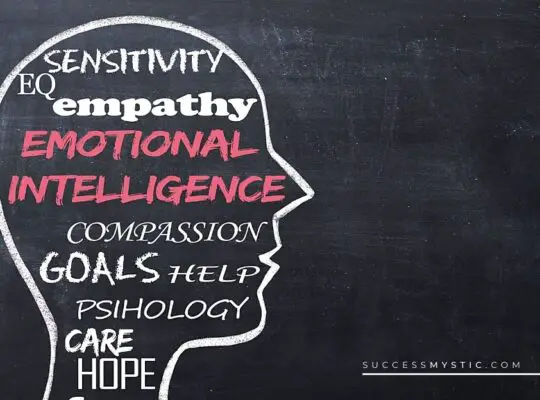What Is Optimism
Optimism is a powerful tool to have in your personal arsenal of traits and qualities. An optimist’s invaluable positive perspective on life not only spreads goodness into the world around them, but also creates a better environment for themselves.
1| Learning To Choose The Optimist’s Viewpoint Feels Like Activating A Magical Superpower
Optimistic people often see different areas of their lives improve when they begin choosing optimism over pessimism. If you believe you need to develop a stronger sense of optimism, learn more about how you can begin developing and nurturing this trait within yourself.
2| Optimism Is The Act Of Maintaining A Positive Outlook Or Perspective On Life, Even When Your Personal Situation Becomes Challenging
Choosing to be optimistic is the opposite of choosing to be negative – when someone is negative, they have a hard time finding anything good on which to focus their energies.
Instead, they have a bleak perspective of what will happen to them or how the current situation they’re facing will end. Optimistic folks maintain the idea that any particular situation or scenario can have a good or favorable outcome in the end.
3| Being Optimistic Can Look Different From Person To Person
If you’re picturing a stereotypical optimist, you may envision someone with a giant smile, lots of energetic body language, and a can-do attitude.
While these are certainly traits of an optimistic person, there are other ways a person can display optimism, such as:
- Continuing to stay engaged and focused on a situation, even when things get difficult
- Not giving up on something or someone
- Using positive language
- Seeing the best qualities of any person or situation
- Believing that situations have just as much of a chance to turn out well as they could badly
- Finding the goodness in every situation
- Finding nice, kind words to share in every situation
4| Learning How You Tend To Display Optimism Is Valuable Knowledge
Because all people are different, they all have the capacity to show optimism in a wide variety of ways. Learning your “inner optimist’s” traits is an excellent way to begin nurturing those skills to see them grow further.
When you have a good grasp on what optimism looks and feels like for you, you can harness your natural inner superpower and use it to improve your life and overall, wellbeing.
After all, an optimist creates and nurtures an environment of positivity and peace – being this force in someone’s life (and your own) is an excellent benefit for everyone!
Understanding The 10 Major Benefits Of Optimism
Being optimistic offers a lot of wonderful benefits. Choosing to view your life through an optimistic lens helps you approach different situations with a healthier perspective that touches many aspects of your personal wellbeing. Being an optimist can help you work through some tough stuff, but it can also make you a better person overall.
1| Optimists tend to experience far less stress and anxiety.
Because optimists have a positive perspective on what’s happening in their lives, they experience far less stress and anxiety. Pessimists tend to fret and worry over everything that could go wrong or get worse in their lives. In contrast, optimists prefer to focus on the positives so they can continue moving forward and avoid getting caught up in the muck of negative, damaging thought patterns. By not allowing themselves to dwell in negativity, they don’t have time to develop stress and anxiety like their pessimistic counterparts.
2| Optimists are usually healthier and feel better.
By steering clear of negativity, optimists tend to maintain better overall bodily health! This factoid, proven by experts in Harvard’s Medical School, link this directly to the points made in benefit #1 above: Because optimists experience less stress and anxiety, their different body systems aren’t affected by it nearly as heavily.
For example, stress and anxiety are direct contributors to heart and circulatory issues, such as heart disease and elevated blood pressure. Because optimists experience less stress and anxiety than pessimists, they’re also less likely to find themselves dealing with a lot of the physical issues tied to those feelings.
3| Optimists form happier and stronger relationships with others.
If you’ve ever been friends with a pessimistic person, you understand how difficult it can be to spend time around someone who can never be happy. When you’re optimistic, you offer uplifting energy to your relationships with others.
This type of energy is a positive force – when you bring optimism to your relationships, you’re helping uplift folks with positivity rather than bringing them down with negativity. This trait helps keep your relationships with others, whether it’s with friends, family members, or partners, much happier and healthier.
4| Optimists tend to be happier than others.
Optimists don’t have time to dwell on negativity and darkness; they’re too busy keeping their sights set on the goodness of a situation. By maintaining an overall positive mental state, optimists tend to feel happier more often than their pessimistic counterparts. The act of being optimistic and positive creates an environment where the optimist feels happier because they aren’t allowing negativity to create a toxic environment for themselves.
5| Optimists have better coping strategies.
Because optimists approach their lives with the “glass half full” attitude, they are able to cope with difficult situations better. Rather than instantly focusing on the negative or a situation or what could go wrong, they actively seek ways that things could go right and ways they can improve the situation.
Because of this, optimists cope with difficult situations better by approaching them with positivity rather than negativity, which often makes difficult situations worse.
6| Optimists have stronger leadership tendencies.
A lot of leaders you admire in life are probably optimists! Optimists have a lot of great leadership tendencies – they understand that people need positivity and strength at the helm of any group.
Optimists tend to be great leaders because they want to find ways to approach challenges positively and lead others in successful ways. To do this, they use their optimism to uplift other people rather than bring them down with negative thinking and actions.
7| Optimists have better relationships with themselves and process their emotions better.
Optimists thrive in positive environments. Because optimists create these positive environments for themselves, they’re well equipped to experience and process their emotions better. They also develop trusting, healthy, and happy relationships with themselves.
Optimists trust themselves to make good decisions based on their positive, open-minded perspective. Over time, this creates a strong sense of self trust and emotional health.
8| Optimists are able to recover from illnesses and medical procedures better. Yes, seriously, this is backed by science.
The doctors and scientists over at Harvard Health confirmed again that optimism is good for your overall wellbeing. Optimists are far more likely to recover from medical procedures and illnesses better than their pessimistic counterparts!
Maintaining a good attitude about medical procedures can be challenging as the idea of surgery, hospital stays, and medical checkups can invoke fear and anxiety in many, but maintaining a positive, optimistic attitude during these processes offers a big payout. Compared to folks with bleak, pessimistic perspectives about their health, optimists spend less time sick and in recovery.
9| Optimists are more resilient in the face of life’s challenges.
Life throws people tons of unexpected obstacles and challenges. Some are harder to overcome than others; however, people with optimism tend to be more resilient. Because they already have a more positive perspective, they’re able to “bounce back” from bad news or a mistake so they can keep moving forward. Optimism drives people to continue working toward a solution rather than sulking in negativity.
10| Optimists usually have a better perspective on any given situation.
Optimists’ outlooks on any situation tend to be better. For example, think of your good friends – out of the group, which friend is most likely to be your go-to person in times of trouble?
Most likely, your go-to friend in a crisis is probably the friend who is most optimistic! Optimists have the special ability to find the goodness and positives in any situation, no matter how challenging it is.
Because of this, they are great people to approach in times of trouble. When you’re feeling like you can’t possibly overcome a challenge, seek advice or assistance from your optimistic friends – they will likely see the more positive side of your challenge that you are struggling to see.
How Optimism Can Act As A Superpower In Your Life
Optimism acts as a superpower in your life because it has the ability to make every aspect of your life better and more positive.
By choosing the optimist’s path, you’re eschewing negativity in favor of a great “what if” – what if things turned out great? What if you were pleasantly surprised? What if everything went according to plan? These outlooks on life’s different situations set optimists apart from everyone else. By setting their sights on a positive future, they’re laying the pathway to make that positivity a reality!
When you start adopting an optimist’s attitude in your own life, you’re unlocking a secret inner superpower one small step at a time. Not every decision you make in your life is going to be a huge, life-altering one. Optimism can be used in all of life’s situations, whether they’re big or small.
For example, small expressions of optimism are a great way to make small, positive changes in your everyday life that feel like you’re working some extreme, superpower-charged magic. Begin approaching optimism in small ways – eventually, you’ll see your optimism grow and develop as a useful tool in larger ways.
To Start Activating Your Optimism Superpower, Consider Some Of The Small Changes You Can Make To Be A Little More Optimistic Everyday
- Make a point to give someone else one nice, genuine compliment each day
- Give yourself permission to ask, “what would happen if this situation ended well?” next time you’re thinking about something that troubles you
- Find a way to help out a friend, family member, or coworker with a task
Case Studies: How Do Optimistic People Handle Life’s Challenges?
Because optimism can be applied to virtually any of life’s situations or challenges, understanding how optimistic people approach different scenarios is a great way to mirror that same optimistic attitude and behavior. Different situations call for different approaches and strategies to choose optimism.
Consider the following examples of how some folks maintain their optimism during difficult situations or challenges:
- Suzie is going to college for her freshman year. She’ll be living in a dorm with a roommate for the first time. While she’s nervous that she and her new roommate might not like each other, she also accepts the fact that they could also end up being great friends. With this possibility, she looks forward to her upcoming move-in day.
- Marcus was just laid off from his job. While he didn’t like this particular job at all, it did help him keep his bills paid. As Marcus determines a plan for finding a new job, he chooses to appreciate that he no longer needs to go back to his old job’s toxic and unhappy environment – he now has motivation to find a new job that will pay him well and make him feel good about his work.
- Bert’s beloved pet dog just passed away. Bert is overcome with grief and sadness for the loss of his furry best friend, but he finds peace in knowing that his dog is no longer suffering from any health problems.
- Jazmine felt pressured to sign a lease agreement for a new apartment. Afterward, she felt like she made a big mistake; the landlord made her feel rushed to sign the contract and she doesn’t think she’ll feel comfortable or safe in the apartment.
The landlord agreed to let her break the new lease if she paid a termination fee. While Jazmine is sad that she had to pay the termination fee to break the lease, she feels good knowing that she won’t be living in a place where she feels unsafe. - John just took his first karate class. He learned some basic moves and realized that he has a long way to go before he will reach his ultimate goal of earning his black belt. However, John realizes that every great, successful person started somewhere, and he views his first class as his starting point toward greatness.
- Bella’s longtime friend suddenly stopped talking to her. Bella and her friend had a rocky relationship, and often, the friend made Bella feel bad about herself by saying mean things about her appearance.
While Bella feels some sadness about the friendship ending, she chooses to focus on her chance to completely end a relationship with someone who treated her badly. She uses the experience as an example of how she doesn’t want to be treated by others in the future. - Donna recently found out her father has cancer. The news is devastating and difficult to process, but Donna decides she is going to look at the situation as positively as she can.
Since the doctors are still running tests and looking at treatment options for her dad’s specific diagnosis, she views her father’s condition as having a potential favorable outcome. Since Donna doesn’t have all the facts yet, she focuses on what she does know and what she can do to support her father for the time being. - Darius’ first work presentation didn’t go exactly like he hoped it would. During the presentation, Darius made a couple mistakes and forgot to include some information that his bosses needed to see to better understand the points he was trying to make. While the presentation didn’t go well, Darius realizes that he did OK for his first attempt at a professional presentation and takes notes from the experience about how he can make his next one much better.
10 Strategies For Developing Optimism
Like any other skill you want to learn, developing a better sense of optimism takes time and practice. If you’ve been overly pessimistic for a long time, learning to trade those negative behaviors can take a little extra effort and practice, but the payoff is worth the work!
Begin developing your optimism superpowers by taking small baby steps. Making small changes in your everyday life is the best way to make optimistic behaviors a permanent habit that is manageable.
To get started, consider some of the small change methods below to ease yourself into an optimistic mindset:
1| Develop some mantras to interrupt any negative thought patterns that make it difficult for you to be an optimist.
Once a negative thought begins circulating in your mind, it can be difficult to stop it. After it circulates long enough, it can feel like that negative thought is taking root and developing into an even larger, more foreboding sense of doom.
Stop those negative thoughts in their tracks by using a mantra to bring you back into the present. Optimists like to focus on the facts of any situation they’re facing – often, when you focus on the facts, you’ll realize that the outlook on a situation has the potential to be better than your negative thoughts want you to believe.
You can create your own mantra to repeat or borrow one of the following for inspiration:
- My worries are not in charge.
- I can focus on the facts.
- Things are going to be OK.
- I can be a positive person.
- I can move forward.
- I can keep going.
- I can make the best of the situation.
When you’re feeling your thoughts drift into negative territory, choose your mantra and repeat it (either out loud or silently to yourself) and focus entirely on the words. Focus on their sounds, their meaning, and their weight. Repeat your mantra as many times as needed to pull you out of your spiraling negative thought pattern.
2| Give yourself permission to put on your “positive lens” glasses.
When something difficult or challenging happens to you, which lenses do you see the situation through – dark, cloudy lenses, or bright, colorful ones? If you lean toward the dark, cloudy perspective, give yourself permission to put on your “positive lens” glasses.
This metaphor simply means that you should give yourself permission to look at things from a positive angle. One great step toward adopting optimism is understanding that a situation has an equal chance of ending negatively or positively. If you’re only viewing things through your negative lenses, it’s difficult to see the equally possible positive outcomes.
The next time you find yourself in a challenging situation, stop your negative thoughts and imagine the positive possibilities. Give yourself permission to also visualize things turning out well. By taking this step toward challenging your usual negative perspectives, you can begin accepting that it’s OK to look at the more positive possibilities, too.
3| Take stock of the people you allow to be part of your life.
Have you ever been in a group of friends who were busy gossiping and swapping secrets? The excitement is totally contagious – at some point, everyone has been guilty of sharing juicy details and gossip with a friend or two.
However, the reason why this behavior is so appealing and addicting is because it feeds into a cycle of negativity. Rather than focusing on the good happening in life, gossip encourages people to embrace negative thinking.
If you find yourself hanging around folks who would rather talk badly about others rather than raise them up, consider the company you’re keeping. Are these folks a source of toxicity in your life? Is it difficult to keep your conversations with them optimistic?
If so, consider limiting your time with these folks. Surrounding yourself with negativity is a surefire way to drain your own optimism. It’s tough to keep your positivity and spirits soaring around folks who aren’t doing the same for themselves.
4| Give yourself regular breaks from social media and the 24/7 news cycle.
Social media can absolutely be a source of happiness and pleasure. People enjoy sharing their triumphs and happy life events; news stations also cover positive events and stories from time to time. However, indulging in social media and the constant flow of incoming news can be a huge drain to your developing optimism.
While there is some positivity in the news and on social media, the 27/7 ability to post and update also leads to some constant streams of negativity. It can be too easy to catch yourself “doom scrolling,” or reading and watching news updates obsessively when something difficult to process is happening. Getting trapped in these constant updates can make you feel hopeless.
Instead of allowing yourself to constantly reach for your phone to scroll through social media, take some time each day where you put your cell phone, tablet, and laptop aside. Focus your “no social media” time on doing something that brings you joy – get some exercise, watch a funny TV show, read a book, or engage in a craft you enjoy.
Giving yourself a much needed break from constant news updates gives you time to process what you’ve already seen and take a break from the stress-inducing surprise of feeling swamped by negativity that can be found on social media.
5| Keep track of things that make you feel grateful.
A gratitude journal is an excellent way to realign your positive, optimistic thinking. In the rush of everyday life, it’s easy to lose sight of the small things that bring you happiness and joy.
To capture these things that make you feel grateful, jot down a couple things you’re grateful for at the end of each day.
By writing down your specific examples of what makes you feel grateful, you solidify those feelings. Writing things down turns them into a concrete, tangible record of how you feel. By keeping this practice going each day, you reinforce the importance of feeling grateful each day – this is an instant optimism booster!
6| Learn to accept your overall lack of control over your entire life.
If people were able to control every single aspect of their lives, they’d always feel optimistic! However, this is not realistic for anyone – even your most perfect-seeming friends still make mistakes and experience unexpected hardships. Learning how to handle these difficult situations requires an important lesson in optimism.
One fantastic way to strengthen your sense of optimism is to accept that you’ll never have total control over everything that happens in your life. While you may be able to control certain aspects of your life, it’s impossible to maintain control over everything.
Give yourself permission to make mistakes, embrace the unknown, and welcome surprises in your life. By approaching your hardships and unexpected events with acceptance, you fortify your sense of optimism.
Giving yourself the power to not live a perfect life is an excellent foray into approaching these hard times with an optimist’s attitude.
7| Find a balance between your positive and negative thinking.
Expecting yourself to be perfectly positive every minute of the day is extremely unrealistic. In fact, attempting to do so may lead to unintended repression of your emotions, which always leads to trouble.
Instead of dampening your negative emotions, give yourself permission to acknowledge your negativity as well as your positivity. Imagining negative situations is healthy and natural; dwelling on them is not.
When you’re imagining what could go right or wrong in a situation, it’s important to acknowledge that both are possible outcomes – it’s an important step toward processing the difficult emotions you may feel during a tough time.
Not acknowledging the negatives can also keep you away from reaching your goals. Sometimes, it is necessary to accept negativity so you can problem solve and grow. If you don’t make necessary changes and allow yourself chances to change and grow, you run the risk of never evolving in a way that allows you to meet goals and evolve as a person.
8| Understand that being optimistic doesn’t equal ignoring reality.
Life is really rough sometimes. Even if it’s difficult to acknowledge and process when cruddy things happen to us, it’s necessary. In fact, learning to accept when things aren’t going well is a crucial component to optimism.
A great way to bolster your sense of optimism is to let yourself accept when life gets challenging. Acknowledge when you’re unhappy and experiencing challenging emotions. Realistically, bad things happen and human beings can experience tough emotions that are hard to handle. Ignoring these facts won’t help you move forward any easier.
While this may not fit the traditional view of being optimistic, it’s an important step toward building a stronger sense of optimism. To give your optimistic superpowers a chance to begin working, you have to recognize that something challenging is happening. Let yourself experience it fully so you can begin to accept it and move forward in an optimistic, positive way.
9| Celebrate all your successes, whether they’re big or small.
All successes are worth celebrating! Whether you reach a major life accomplishment or simply complete one of your pesky to-do list items for the day, consider all these successes as reasons to celebrate!
An optimist knows the importance of creating an environment for yourself where it’s easy to feel good, positive, and motivated. By acknowledging your hard work and successes, you help yourself foster that kind of environment. Give yourself a pat on the back when you do something well – every time you do it, you build a stronger relationship with yourself and boost your overall mood, making it much easier to maintain an optimistic outlook.
10| Approach each day with a “clean slate” attitude.
If you’ve noticed yourself having a string of negative days in a row, it can be a challenge to imagine your situation ever getting better. To challenge this kind of thinking, allow yourself to accept each new day as a “clean slate” opportunity.
Each morning, acknowledge that yesterday may have been a rough day, but that doesn’t mean that this new day has to also be a rough day. Allow yourself the chance to sit yesterday’s difficulties aside and approach your new day as a fresh start.
Try to make your decisions based on what you learned from the day before so you start the day anew and refreshed.
Learning to keep living past the previous day’s trials and tribulations takes a lot of practice, especially if you tend to harbor anxiety or insecurity about past mistakes, but this skill is invaluable to develop for increasing your optimism.
The Bottom Line
Optimism is a learnable skill. Learning how to be a more optimistic person can add extra spice to your life; it can even feel like uncovering a hidden superpower!
Optimism can introduce a lot of power, light, and positivity into your life. As you discover what methods work best for you to add more optimism into your life, don’t be afraid to change your methods, try different approaches, and challenge yourself to choose the optimist’s attitude.
After a while, your new methods will become regular habits and you’ll find your optimistic attitude will be a more permanent feature in your life.







